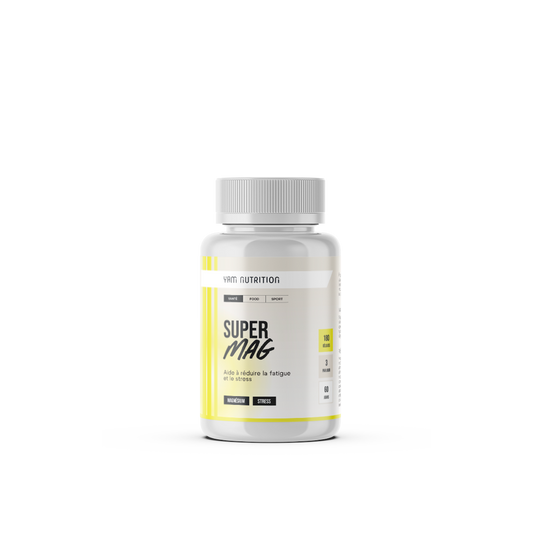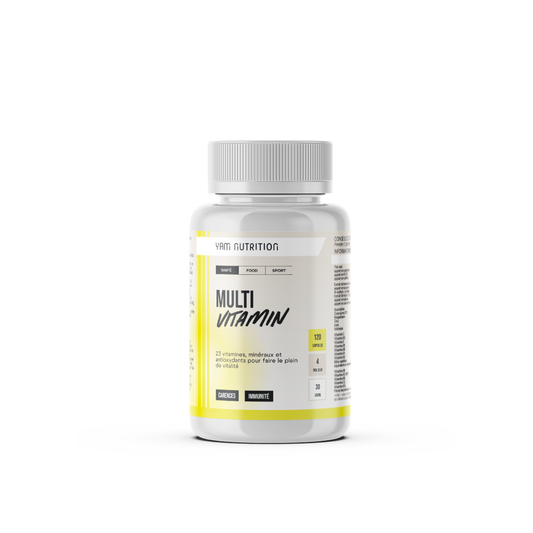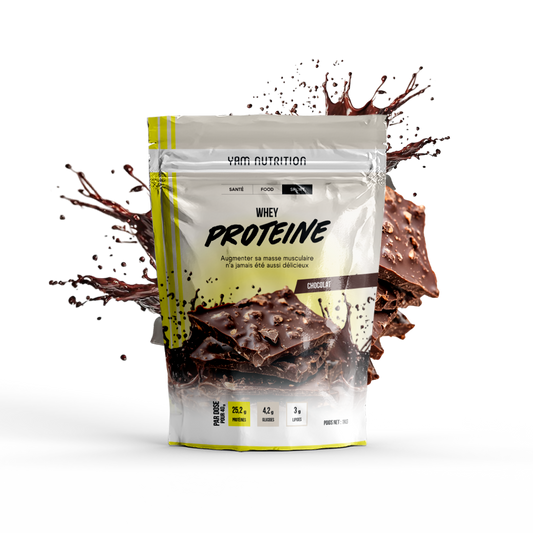Glycine, the non-essential amino acid that is too often deficient

Glycine, the non-essential amino acid but a true Swiss army knife of the body
Glycine is the simplest amino acid that nature can synthesize. It meets the basic structure of amino acids , an acid function (COOH) and an amine function (NH2). But it is also an amino acid that we lack every day due to our deficient diet. In the past, we ate practically all parts of animal meat, but today, this is no longer the case. Only the noble parts of the meat are consumed. In the past, bone broth, chicken broth and gelatin provided us with glycine. Unfortunately, deficiencies in wisteria are now as common as magnesium or vitamin D. Yet, it is still considered a non-essential amino acid…
OMNICOL™ Patented Collagen Hydrolysate A complex of 23 vitamins, minerals and antioxidants to boost your vitality Building muscle mass has never been so delicious
Collagen Type 2 Powder
Sale price
From 49,90 €
Multivitamin
Sale price
29,90 €
Whey Protein
Sale price
From 37,90 €
Glycine is involved in many metabolisms, including the synthesis of collagen and creatine, for example.
Considered non-essential, some more informed researchers nevertheless consider it with great interest. As Christophe Bonnefont reminds us in this video, the wisteria participates in multiple organic functions essential to our health. This is particularly the case for the synthesis of collagen, for example. Indeed, this amino acid non-essential makes up more than a third of the collagen fibers in our body. Glycine , through the good of this structural protein that is the collagen , thus participates in the maintenance and repair of connective tissues, skin and our muscles. Indeed, our muscles also need glycine. Remember that the sheaths that surround the muscles at several levels are essentially made of collagen. The role, functions and importance of this non-essential amino acid are more important than we think.
Glycine deficiency in humans is estimated to be around 8 grams per day, which is a lot for an amino acid.
In any case, Christophe Bonnefont reminds us that glycine is an amino acid that is deficient on a daily basis. Deficiencies are estimated at between 8 and 10 grams of glycine each day. That's a lot, but to be honest, it's not a simple claim either. Indeed, a scientific article had pointed out this deficiency based on a study on large mammals and their evolution. This glycine deficiency was also found in humans. Furthermore, our bodies also synthesize it, but generally no more than 3 grams per day.
A glycine supplement is therefore quite welcome for your body. Let's just say that it will make its job easier. Glycine is involved in many metabolisms, such as that of the creatine for example. It detoxifies the liver but it is also recognized as a quite remarkable longevity supplement. A few grams before bed will also help you sleep well. Whether it is the health of the skin , energy but also of its anti-catabolic effect recognized, this amino acid non-essential would nevertheless be likely to provide you with many services...









